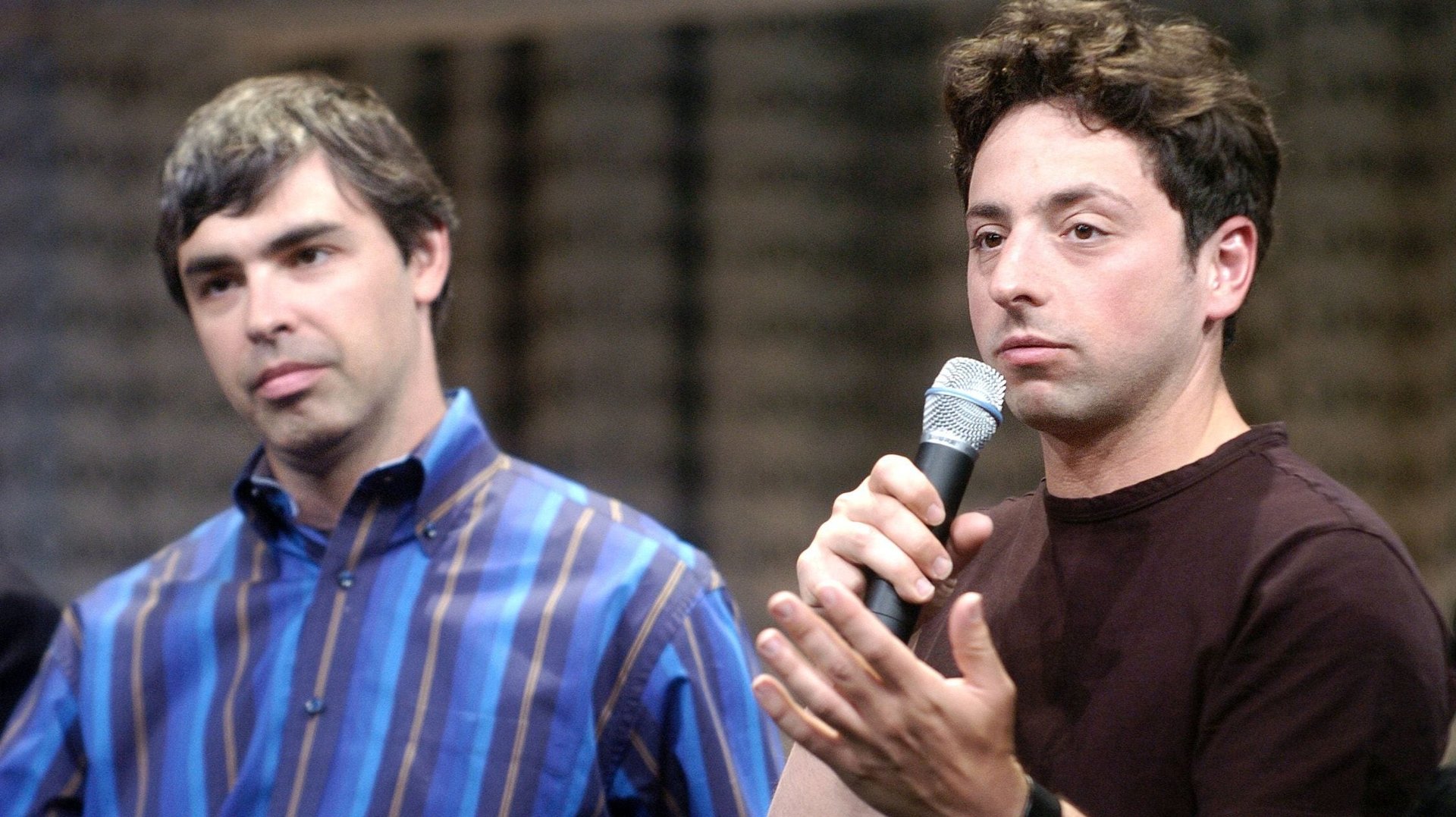Sergey Brin started Google with some strange ideas about “his” female employees, according to a new book
Vanity Fair published an excerpt from a new book about Silicon Valley this week, and with it a fresh, sometimes startling view into life at Google nearly two decades ago, according to people who were there.


Vanity Fair published an excerpt from a new book about Silicon Valley this week, and with it a fresh, sometimes startling view into life at Google nearly two decades ago, according to people who were there.
“Valley of Genius: The Uncensored History of Silicon Valley (As Told by the Hackers, Founders, and Freaks Who Made It Boom) is Wired magazine writer Adam Fisher’s first book. As the title suggests, it’s no love letter to Silicon Valley, but an insider’s account told almost entirely through verbatim interviews, all presented in snippets of dialogue with minimal narrative context.
In the excerpt’s mix of scenes from the grad school-like Googleplex, with its rideable bouncy balls and blue-sky weekly brainstorming sessions, we learn some unpleasant details about Sergey Brin, co-founder and now president of Google parent company Alphabet. Then in his 20s and already in charge of an increasingly powerful company, Brin apparently was unaware of sexual-harassment laws.
Here Fisher quotes Google’s first executive chef, Charlie Ayers, and Heather Cairns, the company’s first HR manager:
Charlie Ayers: Sergey’s the Google playboy. He was known for getting his fingers caught in the cookie jar with employees that worked for the company in the masseuse room. He got around.
Heather Cairns: And we didn’t have locks, so you can’t help it if you walk in on people if there’s no lock. Remember, we’re a bunch of twentysomethings except for me—ancient at 35, so there’s some hormones and they’re raging.
Charlie Ayers: H.R. told me that Sergey’s response to it was, “Why not? They’re my employees.” But you don’t have employees for fucking! That’s not what the job is.
Heather Cairns: Oh my God: This is a sexual harassment claim waiting to happen! That was my concern.
(Fisher writes that Google declined to comment on Ayer’s account. Quartz has reached out to Google and will update this post with any response we receive.)
Ayers also says that Brin and Larry Page hired a “gaggle of girls who were hot”—what the chef called “a harem of admins”—who later became the heads of different departments at Google.
Culture at the company changed with Sheryl Sandberg’s arrival in 2001, Ayers writes. As he remembers it, that was when Google stopped telling people who showed up in suits for job interviews to go home and change into civilian clothing. Executives were also given media training.
But women in tech still encounter plenty of powerful and problematic men. When feminist scholar Catherine MacKinnon spoke at the Milken Institute Global Conference in Beverly Hills this spring, she encouraged company leaders to address exactly this posture.
“I have seen heads of companies get everybody together and actually say, ‘Listen we don’t do this here. You don’t come here to graze on the women who work here,” she told the audience.
Nearly 20 years since Google was founded, that message still needs disseminating.